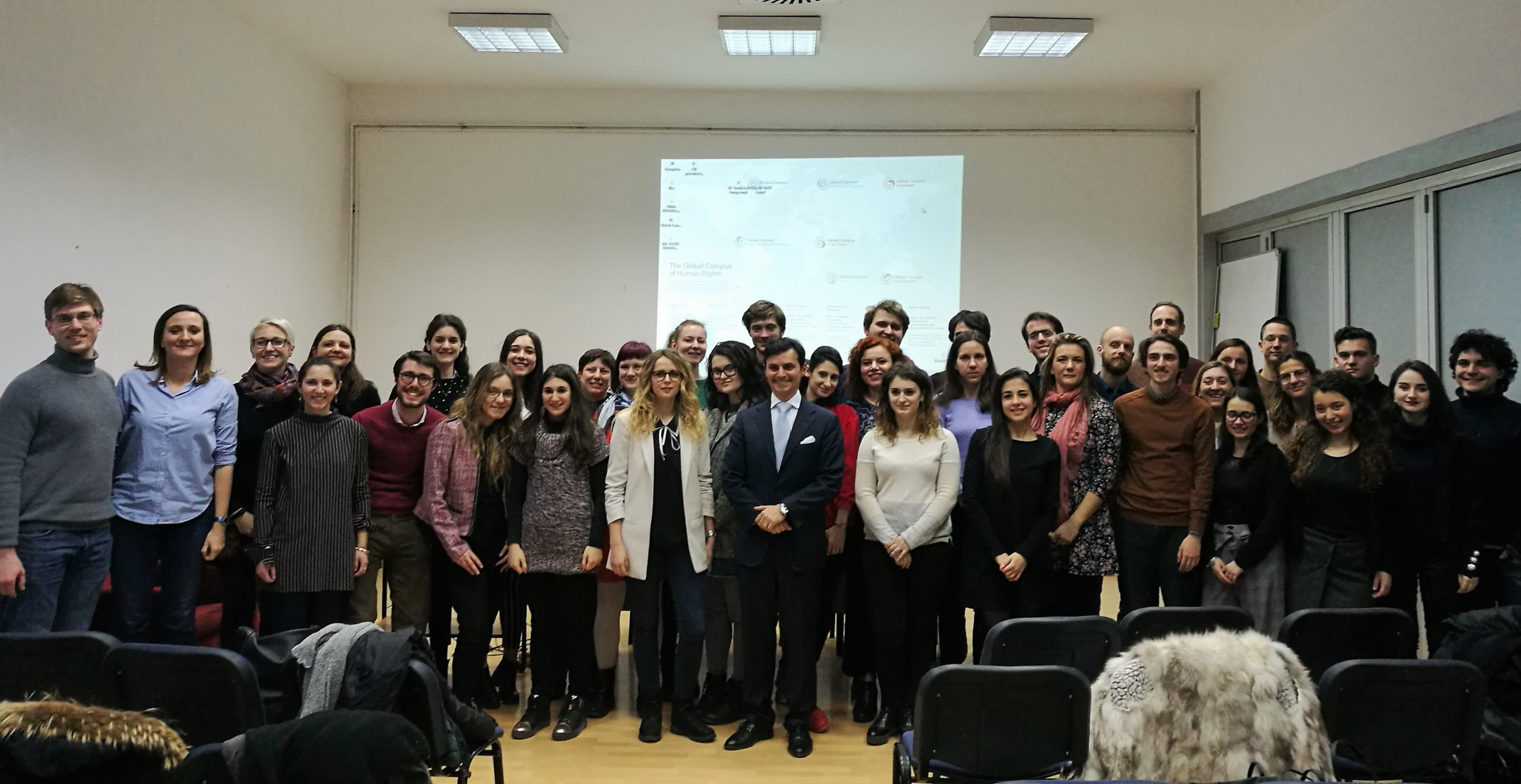
On 27th February 2019, the Center of Interdisciplinary Studies of the University of Sarajevo (CIS) hosted a group of law students from the University of Udine accompanied by professor Laura Montanari and several Italian researchers. Their visit was organized under the auspices of the Embassy of Italy in Bosnia and Herzegovina and H.E. Ambassador Nicola Minasi. Students of the European Regional Masters’ Programme in Democracy and Human Rights (GCSEE/ERMA) welcomed the students from the University of Udine and attended this joint session.
H.E. Ambassador Nicola Minassi addressed the audience by welcoming the students from Italy and used this opportunity to stress the efforts of the Republic of Italy in promoting similar initiatives, focusing very much on young people, education and reconciliation. This year ERMA is educating its 18th cohort of students from across the SEE region, Europe and beyond, and the Republic of Italy has been one of the donors and supporters of the GCSEE/ERMA programme from its very beginning in 2001.
The director of the Center for Interdisciplinary studies, Prof. dr. Melika Husić-Mehmedović welcomed the students and introduced them to the activities of the Center, placing emphasis on their interdisciplinarity and the importance of the international cooperation in developing the Center’s educational programmes. Following up on this, the ERMA Programme Coordinator Ms. Mariana Hadžijusufović gave a detailed presentation of the ERMA programme, inviting the students from the Udine University, who are currently studying for their bachelor’s degrees, to apply for this programme and other LLL programmes, such as international summer and winter schools, organized by CIS.
The main part of the joint session was a video lecture by Dr. Vesna Teršelić, from Documenta, Zagreb, prepared by the GCSEE/ERMA programme as a part of the massive open online course, organised by the Global Campus of Human Rights, entitled “Memory Sites and Human Rights”, on the topic of remembrance. The lecture posed the question of what and how we remember, with regards to the gross violations of human rights from the past, and critically examined the dominant narratives and the practice of excluding the perspectives of Others.
Following the video lecture, the students were given an opportunity to express their opinions and share stories on the topic of “Why and What We Remember?”. The students have reflected upon the role of the international criminal tribunals in reconciliation and they also discussed the collective responsibility of the societies. They agreed that the role of the tribunals is important and that prosecutions of the war criminals are and must be an integral part of the reconciliation processes, but that individual stories also matter and have to be heard and shared among those who once were on the different sides of the conflicts. As a conclusion, the importance of establishing the truth and commemorating all victims of the wars in the ‘90s was stressed and H.E. Nicola Minassy invited the students to be the leaders of reconciliation and promote positive changes in their societies.




